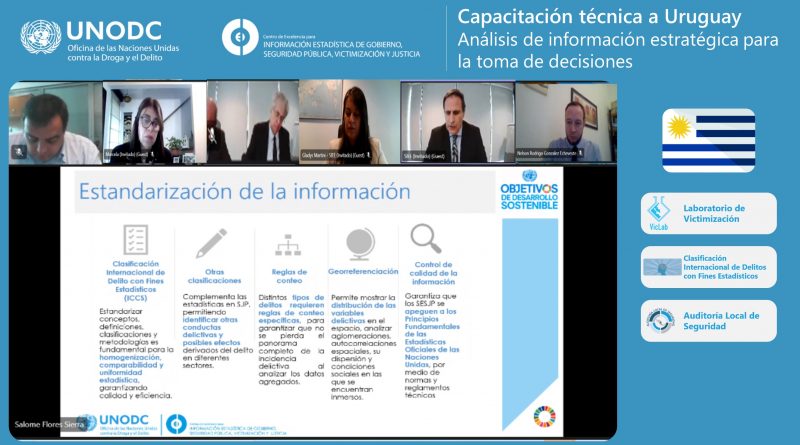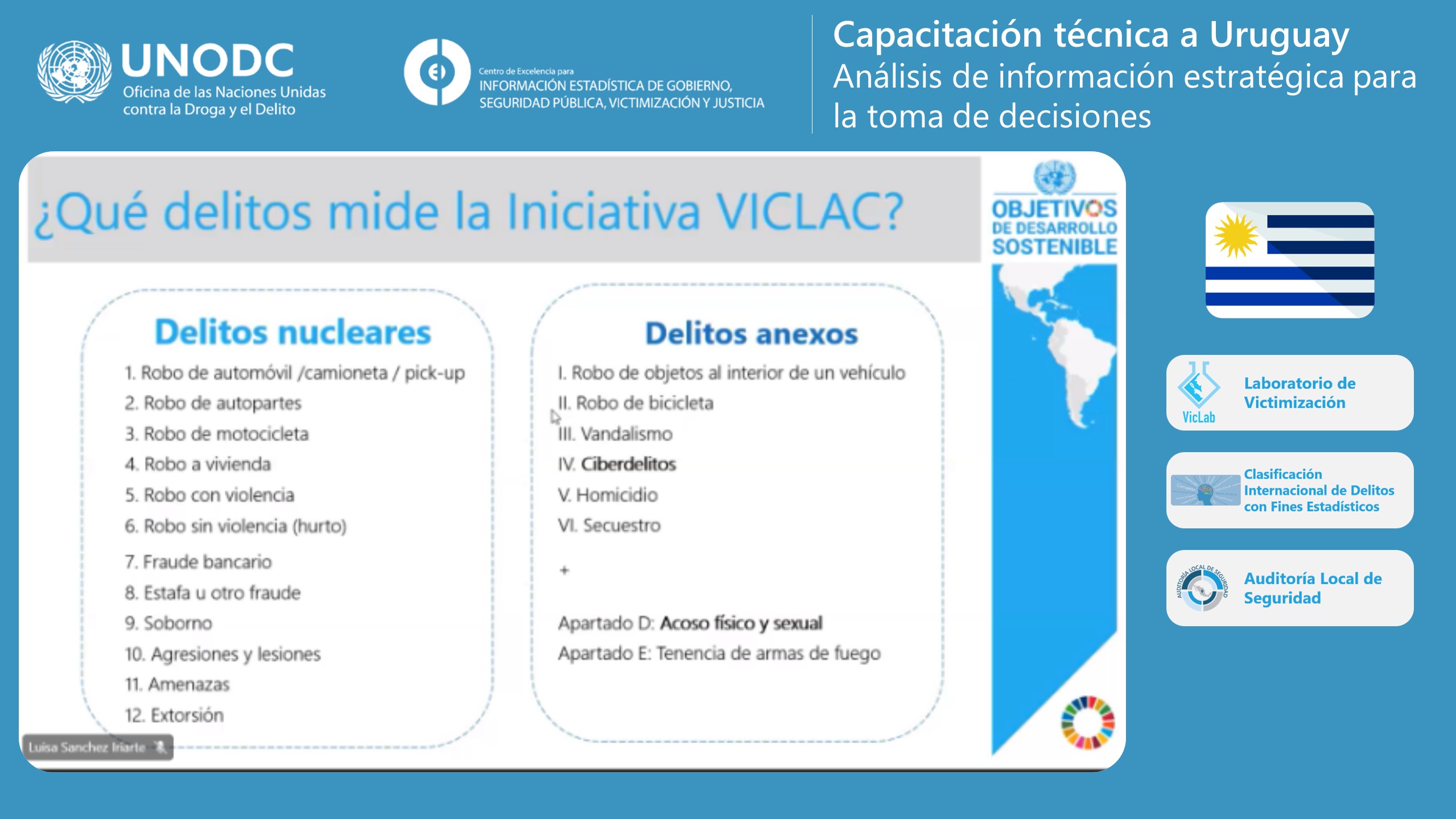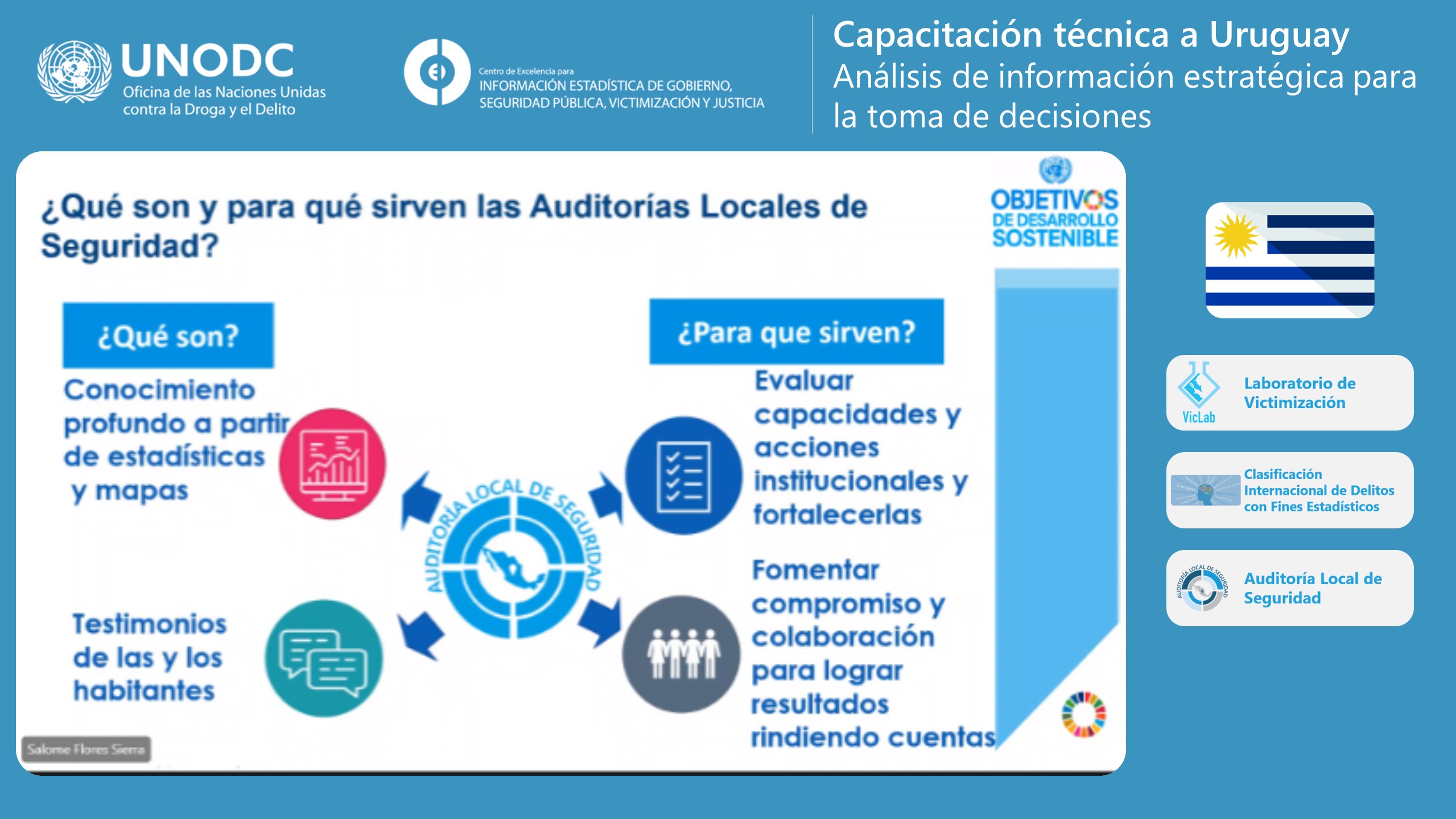Training to Uruguay: quality crime statistics for better public policies
September 13th, the Center of Excellence in Statistical Information on Government, Crime, Victimization and Justice (CoE) of UNODC gave training to technicians of the Secretary of Strategic Intelligence of the State (SIEE), National Institute of Statistics and National Observatory on Violence and Crime of the Ministry of Interior of Uruguay.
SIEE´s mission is to produce strategic intelligence of state to advise the President of the country in strategic decisions making regarding national objectives. Its areas of competence include police intelligence, military intelligence, economic intelligence and foreign affairs intelligence, so it articulates with the four corresponding Ministries (Interior, National Defense, Economy and Finance and, Foreign Affairs).
The SIEE has expressed interest in stablishing an alliance with UNODC and especially with the Center of Excellence due to its large experience strengthening the technical capacities of the institutions that generate statistics on crime and justice in the region. Also, Uruguay has already worked with the CoE on Victimization Surveys and Crime Information Systems (Sistema de Gestión de Seguridad Pública).
After discussions between the CoE and SIEE about the importance of generating data and information from different sources of information as well as analyzing strengths and opportunities for improvement of the country in this regard, the Secretariat asked the Center to training technical governmental teams to strengthen their capacity of analysis of strategic information for decision making evidence based.
During the opening, remarks were pronounced by Dr. Alvaro Garcé García y Santos, SIEE´s Director. The training was focused on: general and structural aspects of statistical systems of security and justice, essential methodological issues to ensure data quality, different sources of information and, the use of data to measure criminal phenomena and design evidence-based policies, at national as well as local level. Also, Victimization Surveys, the International Classification of Crimes for Statistical Purposes and Local Safety Audits were presented highlighting the relevance of these tools in generating information.
Statistics are necessary in order to generate evidence and increase the knowledge about the phenomena for designing and monitoring evidence-based public policies. That allows interventions better targeted, focused on people, places and their associated risks. In addition, quality statistics is essential for regional and international comparisons and for measure the 2030 Sustainable Development Agenda progress.





